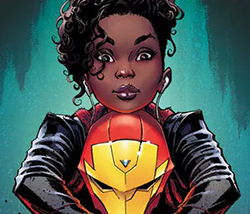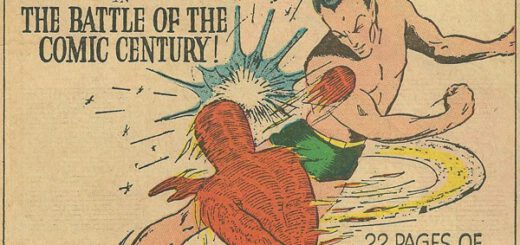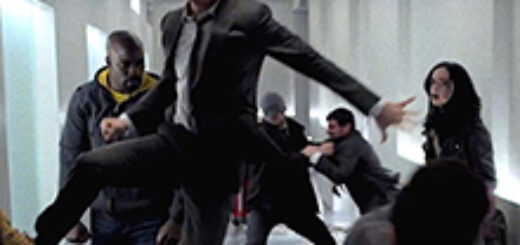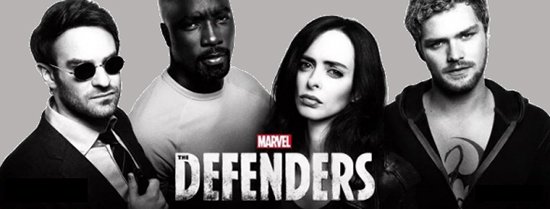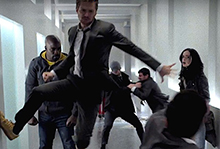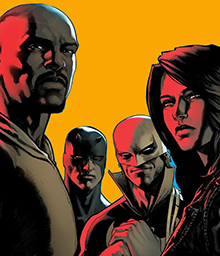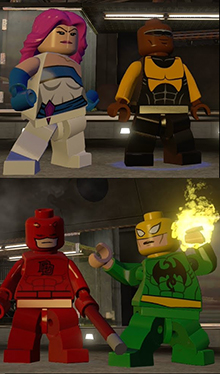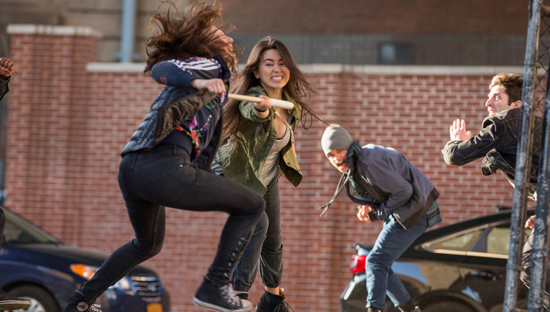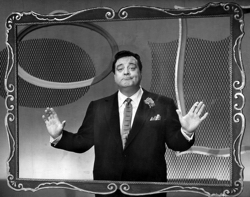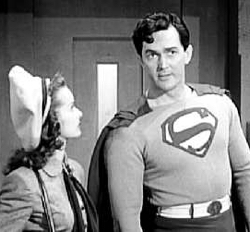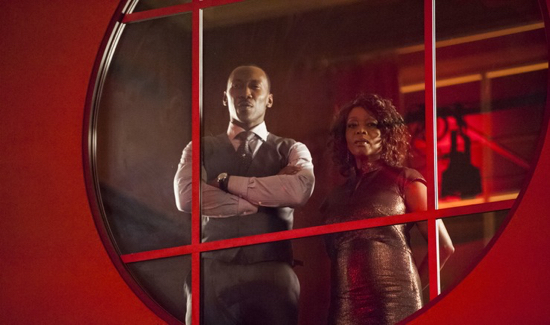The Law Is A Ass #456: It Was No DEFENDER Bender, It Was A Total Wreck
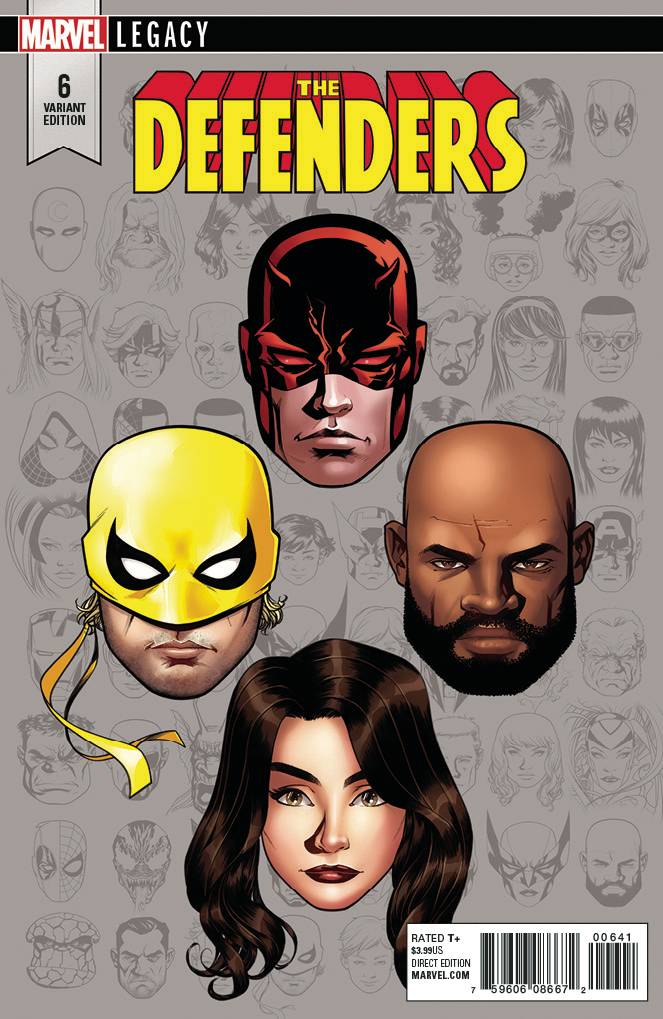
Well, I can’t exactly say that it was wrong. But I can’t say that it was right, either.
The “it” in this case is The Defenders Vol. 5 #6, a story which, despite it’s cover billing as “Kingpins of New York” Part 1, was actually a continuation of events that started in The Defenders Vol 5 #1. In order that we can discuss “Kingpins of New York” part 1 , I need to catch you up on what happened before part 1. (Sigh, nowadays comic book stories are about as linear as an EKG.)
Starting in issue #1 of The Defenders Vol 5, the Defenders – Daredevil , Jessica Jones, Luke Cage, and Iron Fist – had been waging good guy-bad guy war against Willis Stryker. (I guess when Marvel was deciding who should appear in a 2017 Defenders comic, they sat around pondering, “TV or not TV, that is the question.”). Finally, in issue #4, the Defenders apprehended Stryker.
I said “apprehended” as if it were easy. It wasn’t. Stryker was distributing a new drug called Diamond, a derivative of Inhuman Growth Hormone which bestowed temporary super powers on whoever took it. And Stryker wasn’t just the president of the Diamond Club for Men, he was also a client. Still, Daredevil, Iron Fist, Luke Cage, and Jessica Jones did catch Stryker. Caught him while he was trying to beat Black Cat to death.
The authorities decided to transfer Stryker from the local jail to a prison, because he was too “high risk” to be locked up in county jail (also The Defenders Vol 5, #4.) One issue later, Stryker was transported to said prison along with another prisoner, one Frank Castle. In case that name isn’t familiar to you, Frank’s the Punisher. Stryker taunted Castle in the transport van, because that’s what you want to do, taunt a machine gun-toting vigilante who serial kills criminals. Getting your taunt on that way is likely to get you gutted and used as an emergency shelter.
The taunting didn’t go well, shock of shocks. Castle attacked Stryker. In the ensuing melee, the transport van tipped over and Stryker made good his escape. Made good, that is, until the next issue, when the Defenders apprehended Stryker, again, this time while he was trying to kill the Black Cat. In case you lost count, our recap has brought us back to The Defenders #6, which means now the legal analysis can get started.
Stryker appeared for a probable cause hearing in the United States District Court for the Southern District of New York in the case United States v. Willis Stryker. It’s a good thing it wasn’t called United States v. Allswell, because it does not end well.
First of all, if the case is a federal case, it was in federal court, remember, why did the judge say “I do believe the commonwealth has met a prime facie burden?” Our country may be called the United States of America, but four of those states aren’t states at all. Massachusetts, Pennsylvania, Virginia, and Kentucky call themselves commonwealths. In a federal criminal case in a federal court the plaintiff is the United States, no commonwealth would prove anything. No state, either. Commonwealths and states don’t bring charges in federal courts, the US government does.
Compounding that jurisdictional error, New York is a state not a commonwealth. So if New York could prosecute cases in a New York federal court, which it can’t, it would be the state of New York that had made a prima facie case, not a commonwealth.
Finally, why was Matt Murdock even appearing for the prosecution? Matt’s an assistant district attorney for Manhattan. Remember how I said states don’t bring cases in federal courts? (Hey, it was only a paragraph ago. Don’t make your memory even worse than mine.) Matt shouldn’t have been arguing on behalf of the prosecution, it should have been a federal prosecutor.
Okay, all the above was, I admit, a bit of nitpicking, and I was just the nitwit to pick it. I did have a more major problem with the scene. Like everything that happened in it and something that didn’t happen in it.
After a few pages of counsel for the defense and Matt Murdock for the prosecution haranguing and gesticulating about how either poor Mr. Stryker was a victim of vigilante harassment (the defense) or that he was a hardened criminal who escaped police custody (the prosecution), the judge found a prima facie case existed and ordered that the bail would “remain as set.”
Excuse me, bail? For someone who escaped custody? Someone who escaped after he was deemed too dangerous for county jail so had to be sent to a prison while waiting trial? Someone who tried to beat the Black Cat to death after he escaped?
Defense counsel claimed there was no evidence or witnesses to this attempted murder, but Iron Fist, Daredevil, Luke Cage, and Jessica Jones all saw Stryker assault Black Cat. If there was no evidence about the assault, that can only mean the prosecution didn’t call any of those witnesses to show the court how dangerous Stryker was and why he shouldn’t be granted bail.
This story took place after Matt Murdock successfully argued to the Supreme Court of the United States that masked super heroes could testify in court without unmasking, so Matt could have called Iron Fist but maybe not Daredevil, given that Matt is Daredevil so he would have had to keep swinging from counsel table to the witness stand. If Matt forgot the legal precedent he, himself, successfully argued to the Supreme Court only a few months earlier, Matt’s an even worse attorney than I thought. And my opinion of him wasn’t all that high to begin with. Moreover, even if Daredevil and Iron Fist couldn’t testify, Luke Cage and Jessica Jones aren’t masked. Their identities are publicly known. They definitely could have testified.
Matt should have had at least one of those four eyewitnesses testify in the hearing to establish that Stryker tried to kill Black Cat. He didn’t. So I guess Matt is an even worse attorney than I thought he was. I mean, I haven’t practiced law in over ten years now and have probably forgotten more than Matt Murdock allegedly ever knew, but I know I would have had one of those four testify to prove Stryker tried to kill Black Cat.
Had Matt established that Stryker was a criminal who was too dangerous to wait in the county jail, escaped during transport, and tried to kill Black Cat after escaping, I believe the judge would have denied Stryker bail. And then Stryker would have rotted in federal prison while waiting for his trial.
Of course, if Stryker had rotted in prison while waiting for his trial, that would have meant the other four parts of “Kingpins of Crime” wouldn’t have happened. But you know what they say, sometimes you just have to take the good with the good.

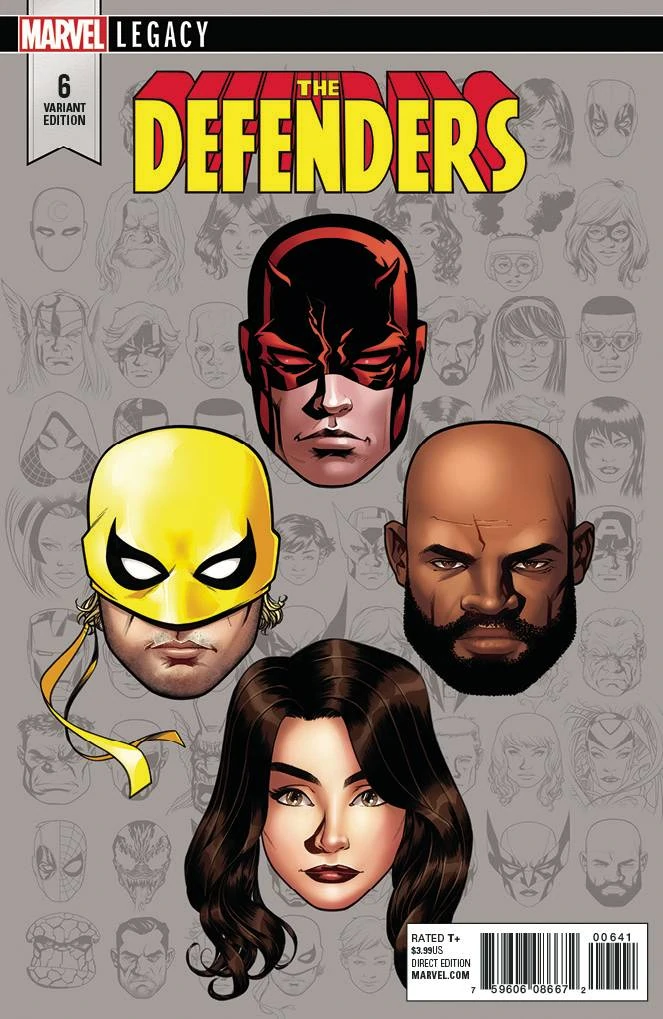

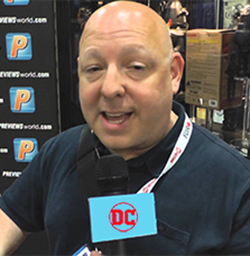 Can you feel it in the air, kiddos? Whether it’s our President’s RussiaGate investigation picking off staff members and placing others under house arrest, or the massive movement of that other three-named comic book creator being snagged by their rival comic company. The times? They are a’changin.’
Can you feel it in the air, kiddos? Whether it’s our President’s RussiaGate investigation picking off staff members and placing others under house arrest, or the massive movement of that other three-named comic book creator being snagged by their rival comic company. The times? They are a’changin.’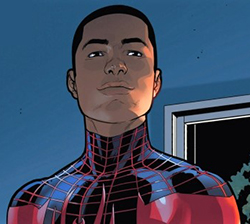 In 2000, which I’ll be double-damned was seventeen friggin’ years ago, BMB was brought in on a little experimental book Ultimate Spider-Man. The proto-millennial Peter Parker of Bendis’s pen was what a generation needed from their comics. He was young, unencumbered by decades of backstory, and full of delicious teen angst. Paired with the artwork of stalwart journeyman Mark Bagley, the book skyrocketed Bendis’s name-value into the upper echelons of the modern comic book fandom. And over the course of his career at the house funded by the Mouse, Bendis had amazing runs on Daredevil, The Avengers, Alias, and the X-Men. But you have access to Wikipedia too, so, let’s just call it a day with the basics, shall we?
In 2000, which I’ll be double-damned was seventeen friggin’ years ago, BMB was brought in on a little experimental book Ultimate Spider-Man. The proto-millennial Peter Parker of Bendis’s pen was what a generation needed from their comics. He was young, unencumbered by decades of backstory, and full of delicious teen angst. Paired with the artwork of stalwart journeyman Mark Bagley, the book skyrocketed Bendis’s name-value into the upper echelons of the modern comic book fandom. And over the course of his career at the house funded by the Mouse, Bendis had amazing runs on Daredevil, The Avengers, Alias, and the X-Men. But you have access to Wikipedia too, so, let’s just call it a day with the basics, shall we?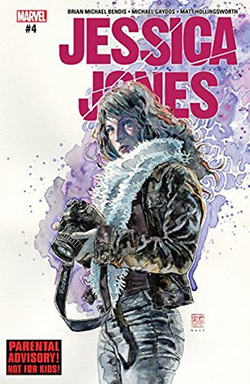 While some would be quick to point out that BMB’s clout may not be at the same levels it once was, anyone with a Facebook feed like mine when the announcement dropped surely could argue otherwise. Every comic book fan and creator I know had something to say on the matter. Most all of it was purely positive – save literally for that one friend who literally can’t say they like anything, ever. But, pardon my French, fuck that guy.
While some would be quick to point out that BMB’s clout may not be at the same levels it once was, anyone with a Facebook feed like mine when the announcement dropped surely could argue otherwise. Every comic book fan and creator I know had something to say on the matter. Most all of it was purely positive – save literally for that one friend who literally can’t say they like anything, ever. But, pardon my French, fuck that guy.